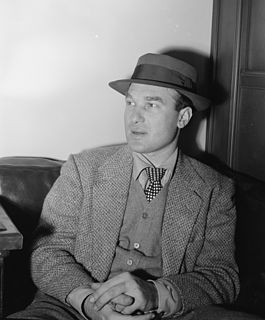A Quote by Norman Granz
There are many artists that I present that I admit I like less than I do others. But I think that they warrant being presented by my own, personal standards.
Related Quotes
It's your life - but only if you make it so. The standards by which you live must be your own standards, your own values, your own convictions in regard to what is right and wrong, what is true and false, what is important and what is trivial. When you adopt the standards and the values of someone else . . . you surrender your own integrity. You become, to the extent of your surrender, less of a human being.
We have good security. It's hard to get in here. Barring a tactical entry where terrorists come in and hold us hostage, that's about the only thing that could possibly warrant me carrying a gun in the clubhouse. That's highly unlikely, and I admit that. But my personal belief is I don't want to suffer from the poor choices of others.
Free men and women... can think across time, viewing their own lives, inclusive of past, present, and future, as architectural wholes, static in mental space. They can therefore see, as others cannot, the cracks and buttresses of repeated action, the points of stress, the established framework. They are not perfect; but they are less imperfect than we by a full dimension of being.
It's easy to run to others. It's so hard to stand on one's own record. You can fake virtue for an audience. You can't fake it in your own eyes. Your ego is your strictest judge. They run from it. They spend their lives running. It's easier to donate a few thousand to charity and think oneself noble than to base self-respect on personal standards of personal achievement. It's simple to seek substitutes for competence--such easy substitutes: love, charm, kindness, charity. But there is no substitute for competence.
Hillary Clinton has perfected the politics of personal profit and theft. She ran the State Department like her own personal hedge fund, doing favors for oppressive regimes and many others in exchange for cash. Then when she left, she made $21.6 million giving speeches to Wall Street banks and other special interests in less than two years - secret speeches that she does not want to reveal to the public. Lobbyists, CEOs, and foreign governments totally own her, and that will never change if she ever became president.
I stand here on the summit of the mountain. I lift my head and I spread my arms. This, my body and spirit, this is the end of the quest. I wished to know the meaning of all things. I am the meaning. I wished to find a warrant for being. I need no warrant for being, and no word of sanction upon my being. I am the warrant and the sanction. Neither am I the means to any end others may wish to accomplish. I am not a tool for their use. I am not a servant of their needs. I am not a sacrifice on their alters.
High personal standards aren't enough for organizational excellence. You've got to be intolerant of low standards in others. . . . If you accommodate questionable practices in others who touch your organization, you risk soiling its reputation. Anybody whose hands aren't clean can get the place dirty.
A woman has, first of all, her duties in their own home, and there are many women particularly when they're young, who can do an active job in their community like being a mayor, but who cannot go to Washington or Albany or wherever the capital of the state is. There are others who can, can leave home, whose children are older and so forth. I think it all is a personal decision.
When we speak of ordinary unqualified knowledge, my thought is that we are implicitly relativizing to the standards imposed by our evolution-derived humanity. These are standards that determine when we consider it appropriate to store beliefs just as a human being, rather than in one's capacity as an expert of one or another sort. Such stored beliefs are to be available for later use in one's own thought or in testimony to others.
Maybe that's the way to tell the dangerous men from the good ones. A dreamer of the day is dangerous when he believes that others are less: less than their own best selves and certainly less than he is. They exist to follow and flatter him, and to serve his purposes. A true prophet, I suppose, is like a good parent. A true prophet sees others, not himself. He helps them define their own half-formed dreams, and puts himself at their service. He is not diminished as they become more. He offers courage in one hand and generosity in the other.


































